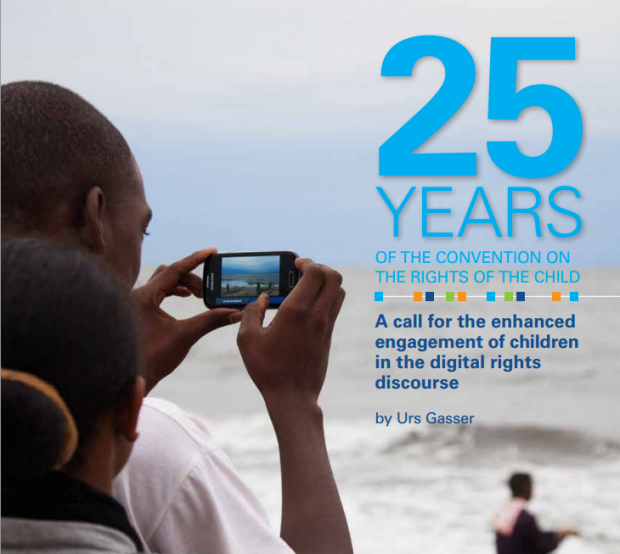Whether ‘youth’ is defined in more concrete terms according to age, or more fluidly according to life stage, the voices of this demographic are often overlooked in conversations about the global digital divide and media literacy. While youth are some of the most vulnerable and marginalized people in the developing world, they’re also some of the most creative and forward-thinking. Including youth in conversations and initiatives for media development isn’t only necessary, but also beneficial.
Digital technologies can enable young people worldwide to share their views on issues that affect their everyday lives, such as education, health, good governance, and the environment. However, access to such technologies is not globally uniform. The opinions and needs of certain youth, therefore, can become victims to this digital divide.
UNICEF recently addressed this issue in a report concerning the engagement of young people in the global digital rights discourse. In the report, Urs Gasser calls for global stakeholder participation to ensure that laws and technology are used in concert to safeguard children’s fundamental rights. In particular, youth should have access to, skills with, and agency within the variety of information and communication technologies available. To guarantee this, he calls for financial resources, proper training, mentorship, and assessments of the risks faced by youth using the web.
Most importantly, Gasser calls for a common sense step that is often disregarded — taking youth seriously. It’s not enough that some young people in the developing world may have access to digital technology; they need to be encouraged to use these technologies to share their experiences and views on issues that matter to them.
What the report doesn’t note, however, is that while access to digital technology may result in a growing quantity of news and information sources, this doesn’t necessarily guarantee the quality of these sources. In order to combat the misinformation that can become rampant on digital media, youth need to be taught media literacy. Media literacy is not only the access to media, but also the comprehension, evaluation, critique, and production of information from a variety of sources.
The goal of media literacy is to produce well-informed, critical thinking consumers and citizens. As noted in a special report to CIMA, however, media literacy education may be hard to institute in classrooms because decision makers, including school administrators and policy makers, misunderstand the concept and give it low priority, or may be focused on print rather than new media. This last point, especially, underscores Gasser’s assessment that all stakeholders should be given the proper training and resources to provide for the digital media needs of youth.
Anthony Abate is one such stakeholder. Abate, a current Peace Corps volunteer in Morocco and CIMA alum, is part of a team working on Morocco World News Junior, the youth platform of the country’s largest English-language news website, Morocco World News. Slated for a February 2015 launch, Morocco World News Junior aims to involve Moroccan youth in news production and, as Abate says, “realize that news and media is something that can be interactive and fun.”
Other initiatives working to amplify the voices of youth in developing countries include Search for Common Ground, UNICEF’s Voices of Youth, and South Africa’s youth-run online newspaper Daily Vox. As noted in the special report to CIMA, however, stakeholders must recognize that digital technology and new media aren’t panaceas to the digital divide and low media literacy. Traditional media like radio and print may be more effective mediums for information-sharing in places where vast infrastructure challenges to digital penetration still persist.
Any initiatives involving youth in media development, therefore, must rely on research and a nuanced understanding of the cultural, social, and political contexts in these particular countries. This kind of research and on-the-ground knowledge are what Abate and the rest of the team at Morocco World News Junior are using to make the project an incubator of Moroccan news leaders and innovators.
Listen to the podcast above to hear more of my conversation about youth in media development, particularly in the Moroccan context, with Abate.
Podcast music: “Hydromel” by The Seventh Alchemy, licensed under Creative Commons


Comments (0)